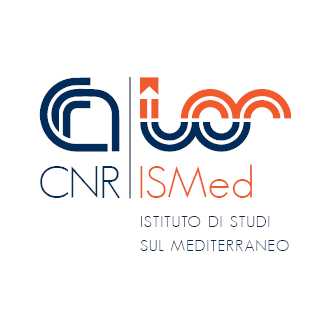Society and cultures of the ancient Mediterranean
Coordinator: Stefania Pafumi
Abstract
This line of research deals with the study of the phenomena and dynamics that characterised the cultural landscapes of the ancient Mediterranean, a privileged place for interaction and contamination, for the diffusion of people, knowledge and technologies, conflicts and identities, using multi- and interdisciplinary paths.
It aims to investigate and contextualise on a local, regional or global scale, both the role of the environment and natural resources, and that of man in shaping and modifying the landscape, social and productive processes, and cultural interrelationships from antiquity to the present day, through the Middle Ages and the modern age.
Exploiting the historical-artistic and archaeological, epigraphic and palaeographical, linguistic-literary and historical-philosophical skills present in the institute and promoting their interaction with the social sciences and the most innovative technologies, the research activities include traditional themes of antiquity applied to the movable and immovable cultural heritage, The research activities include traditional themes of antiquity applied to the movable and immovable, material and immaterial cultural heritage of the Mediterranean, in a longue durée perspective and through a holistic approach that also takes into account the specificities of particular cases, in order to contribute through new readings and always possible re-readings of ancient components to a better understanding of the contemporary world.
Objective
The aim of the research line is to generate new scientific knowledge on the historical, political, socio-economic and cultural phenomena of the ancient societies of the Mediterranean basin, in order not only to improve the understanding of the civilisations that produced them, but also to make the knowledge acquired capable of concrete action on contemporary society, improving the processes of protection, management and valorisation of the cultural heritage and encouraging free access and re-use of the data produced. The aim is to use case studies selected as contexts for analysis and investigation to develop new, integrated and replicable methodologies, which, by contextualising ancient documentation, enable the study of complex ancient and modern cultural systems from a multidisciplinary perspective.
- The transversal objectives common to the projects belonging to this line of research are:
- the development of new models for interpreting the historical-archaeological heritage (including that preserved in museum deposits whose conditions of knowledge, conservation and valorisation need to be improved) in the various ancient and post-antique contexts.
- the adoption of innovative and integrated information storage and management processes in terms of digital transition;
- the application of state-of-the-art strategies for the valorisation of the heritage itself and for a more participatory and shared approach of today’s citizens and communities to the contexts and contents of research on the ancient world.
- the communication of research results through dissemination activities that may be undertaken in concert with the institute’s Third Mission colleagues.
Activities
The research activities envisaged range from the collection, processing, archiving and management of historical information, to the analysis and interpretation of material documentation (understood as a coherent set of documents, both archaeological and epigraphic, grouped by origin, by theme of interest, by chronology or by collecting history) and include all possible cooperation processes, useful for generating new knowledge in the context of inter- and multidisciplinary research projects.
Themes
The themes envisaged are those of historical-archaeological research applied to the ancient Mediterranean:
- the social history and the role of vectors of ancient cultures with particular regard to the Syrian-Anatolian, Phoenician, Etruscan-Italic and Greco-Roman cultures;
- the material culture of ancient societies in its various forms and components;
- the reconstruction of the ancient and post-ancient history of the recovered and museumised objects and of their different contexts of use and fruition (archaeological, collection and museum contexts);
- the analysis of production processes (also of single aspects of material culture) and of the underlying social and economic dynamics, according to both an analytical-diachronic and a comparative approach;
- the analysis of both documentary and literary texts (starting from the average literacy levels of ancient cultures and continuing with the first epigraphic texts and manuscripts) and iconographic texts;
- cultural interrelations between social groups.
A natural thematic extension is represented by the analysis of the decisive processes in the formation of the historical culture of and about the Mediterranean, understood as the history of ideas and research. They therefore constitute further areas of investigation:
- peculiar aspects and outcomes of antiquarian culture and archaeology in the Mediterranean;
- the developments of archaeology as a historical science from the 18th century to the present day;
- the survival of antiquity in modern and contemporary culture;
- the tradition of antiquity through the Middle Ages and the modern age;
- the history of collecting and collections of antiquities;
- the history of libraries and antiquities collections;
- the impact of Italian historical culture in the current Mediterranean and more generally in European historical culture.
Main collaborations
The research group that belongs to this line collaborates with: National Archaeological Museum of Naples and “Federico II” University of Naples; Civic Museum of Catania and Department of Humanities of the University of Catania; Museum of Egyptian Antiquities Foundation of Turin; Scuola Normale Superiore of Pisa; National Institute of Etruscan and Italic Studies; University of Bologna; University of Zaragoza; Alteritas – Interaction between Peoples, Verona; Museo Nazionale Romano; SABAP Pisa; Museo Civico Archeologico di Fara in Sabina; Ente Italiano della Montagna (EIM); Società Geografica Italiana (SGI); University of Rome “La Sapienza”; Pontificia Academia Latinitatis; RESpro Association. Network of historians for production landscapes; University of Tuscia and Centro Studi Santa Rosa da Viterbo.
Main products
Monographic scientific publications; critical editions of written sources; contributions in collections and conference proceedings; contributions in specialist journals; series of publications (Corpus inscriptionum Etruscarum and Thesaurus linguae Etruscae; Encyclopaedic Dictionary of Phoenician Culture (DECF) or Encyclopaedic Dictionary of Phoenician Culture (EDPC); participation in national and international conferences; participation in the preparation of new museums and exhibitions; public engagement with society and the territory.
Last update
20 November 2023, 11:22

 CNR – ISMed
CNR – ISMed